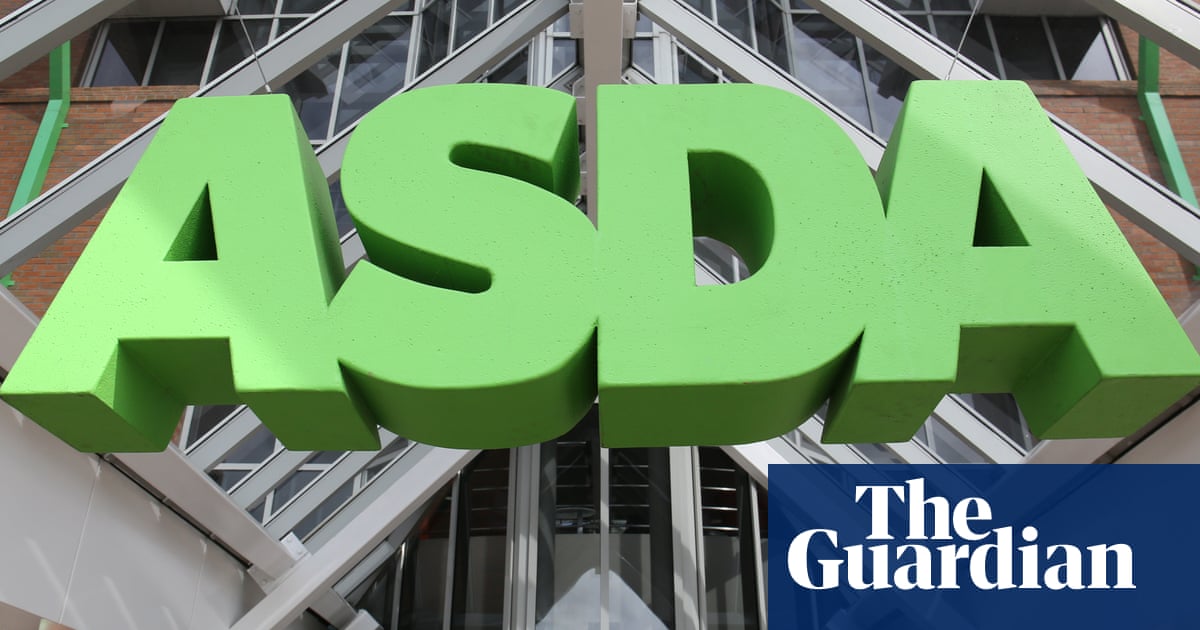Asda is unlikely to see growth before the end of this year at the earliest, the supermarket’s chair, Allan Leighton, has said, as sales continue to fall despite price cuts and more stock on its shelves.
Meanwhile, Aldi, which is closing the market share gap with Asda, put further pressure on its rival by announcing significant expansion plans across the UK.
Underlying sales at Asda fell 3.1% in the four months to the end of April compared with the same period a year before – despite on-going food inflation which has helped all other rivals grow.
However, Leighton said Asda, which has been struggling sincea £6.8bn buyoutby Blackburn brothers Mohsin and Zuber Issa and the private equity firm TDR Capital in 2021, was seeing “green shoots” as the pace of decline had eased from the previous quarter. “We have made real progress but there is a long way to go,” he said.
Total sales fell nearly 6% to £5bn in the period after the UK’s third largest supermarket invested millions of pounds in keeping down the price of key items and updating its IT systems as part of an £800m-plus handover from systems run by its former owner Walmart.
“We are still down and we have to get up,” Leighton said. “We could price up and do promotions to get the sales line up, but this is a three- to five-year plan and we are creating something enduring.”
The veteran retailer, whoreturned to Asda in Novemberlast year after a two-decade gap, said he remained confident the company could return to growth.
He said sales of the group’s George clothing ranges were outperforming the wider market, and were up 3.5% in established stores. Petrol forecourt and convenience store sales were also up after fuel prices sharpened.
Afterditching a price-matching schemewith Aldi and Lidl this year, the group plans to return to offering everyday low prices under the banner Asda Price by the end of next year rather than a plethora of cut-price offers.
“The plan is, towards the end of the year, to return to top-line growth and get more units in people’s baskets, up the price gap [with rivals] and improve availability,” Leighton said.
The former Co-op Group and Royal Mail boss said Asda was now between 3% and 5% cheaper than its mainstream rivals on average, although still dearer than the fast-growing Aldi and Lidl.
His pledge toinvest in cutting priceswiped £4bn off the value of its main listed rivals in March. He said on Thursday that the group had already reduced the price of 10,000 products and was “inflating behind the rest of the market by about 2%”.
However, Asda has been losing share to both its bigger traditional rivals – Tesco and Sainsbury’s – and the discounters, which are rapidly opening stores and gaining new shoppers searching for bargains amid on-going pressure on household bills.
Sign up toBusiness Today
Get set for the working day – we'll point you to all the business news and analysis you need every morning
after newsletter promotion
Aldi is now within one percentage point of overtaking Asda to become the UK’s third biggest supermarket, according to analysts at Kantar, and is already there on some narrower measures.
On Thursday, Aldi, which Kantar says increased sales by 6.7% in the three months to 18 May, unveiled plans for 40 more stores this year. The German-owned retailer expects to open a similar number in each of the next two years.
Giles Hurley, the boss of Aldi in the UK, said the business was committed to remaining the cheapest whatever its rivals did. “The price gap with the competition is as big as ever,” he said.
Leighton said Asda could fight back as it was a “very different proposition” to both the discounters and mainstream supermarkets – with George clothing a key part of the plan.
“George is going to be the number one brand by volume in clothing in the next three years,” he said.
Leighton has said it could take five years toturn around the supermarket group, which is now controlled by TDR after itbought out Zuber Issalast year, while his brother, Mohsin, stepped back from effectively running the retailer but retains a 22.5% stake.
